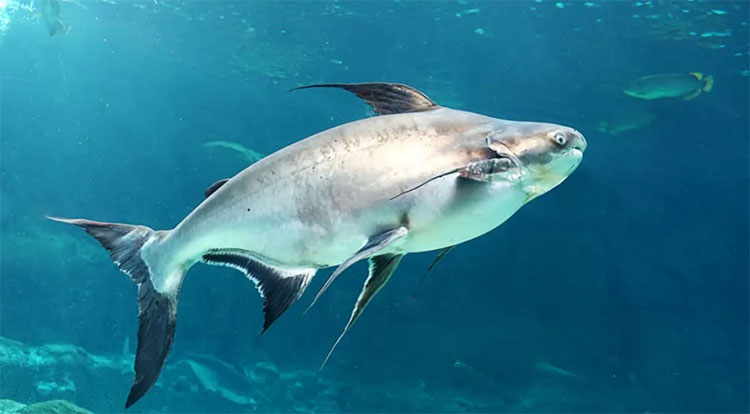The world's rivers and lakes have lost nearly 90% of large species
Fresh lakes and rivers are one of the most dynamic and diverse systems on our planet.
In the first comprehensive study to track changes in megabauna populations - the term for large species of organisms living in freshwater environments on a global scale, a group of international scientists synthesized them. whether it involves more than 120 freshwater megabauna species around the world and compares it with the historical geographic distribution to the modernity of 44 species in Europe and America.
Results showed that from 1970 to 2012, 88% of the world's megabauna species declined, some parts of the world saw 99% of species disappear. Among the most threatened species are large fish species such as sturgeon, salmon and giant catfish that have decreased by 94%, followed by reptiles with a 72% decrease.

The population of large fish species on a global scale tends to 'disappear' gradually.
"The results are alarming and confirm scientists' fears regarding research and protection of freshwater biodiversity, " said Sonja Jähnig, a researcher.
In particular, the region including Southeast Asia and part of East Asia, has fallen by 99% while the huge fish population in the Mekong and Amazon has dropped to nearly zero due to the deteriorating environment. Species in the region stretch across Europe and most of Asia in northern Africa, have decreased by 97%.
The cause is determined by the lifestyle, complex environmental needs and slow life history of large freshwater fish species that make them particularly vulnerable to environmental changes and are more extinct. .
"The decline of large fish species is also thought to be due to the loss of free flowing rivers because access to breeding and feeding grounds are often blocked by dams," study coauthor Fengzhi He said.
Although the world's major rivers have been severely divided, but 3,700 other large dams are planned or under construction, this will exacerbate the river's fragmentation. More than 800 of these planned dams are among the diverse hotspots of freshwater aquatic species, including the Amazon, Congo, Mekong and Ganges basins.
However, the researchers note that some species have shown an improvement in population levels due to conservation efforts such as stable or increasing US green sturgeon and beaver in the US and the Irrawaddy dolphins in The Mekong River basin is increasing for the first time in two decades. In fact, current conservation efforts are largely inadequate and political boundaries tend to make large-scale efforts difficult to implement.
"More than half of all freshwater megabauna species are considered to be threatened with extinction ," Jähnig stressed.
The authors note that their report has the most important purpose of emphasizing the need for conservation action, as well as improving surveillance and population trends and future distribution analysis.
- Scientist 'went out' to clean up rivers and lakes
- China: 70% of rivers and lakes are polluted
- 10 'dying' rivers of America (Part 1)
- The secret has no solution at the heart of Lost Lake in Oregon
- 8 most dangerous invasive fish species in the world
- Video: The threat of blue algae blooms in the rivers and lakes
- H2O heats up: The threat of fish
- Where has the Sahara Desert been?
- Preserved ... wrong
- Rivers are infected with antibiotics
- River sharks - Fact or rumor?
- Crocodile all walk through the golf course to the lake
 Animal 'suffering' after hibernation
Animal 'suffering' after hibernation Why do goats climb well?
Why do goats climb well? Scientists were surprised to see chimpanzees eating turtles
Scientists were surprised to see chimpanzees eating turtles Giant catfish died deadly due to drought in Thailand
Giant catfish died deadly due to drought in Thailand